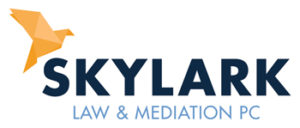Wondering what your ideal conflict resolution process is? We have created a free online quiz to help you Assess your Conflict. After taking the quiz you’ll be returned to this page to learn more.
Thank you for taking the dispute resolution quiz. Of course, speaking to a Conflict Assessment & Resolution professional could help you evaluate more complete information and decide what process is the best option for you. Obviously, an online quiz can’t take all of your situations into account and you should not rely on the quiz result alone. Below is more information about each of your options for dispute resolution:
Collaborative Law – Collaborative law is a structured process that maximizes privacy, control, and cost-efficiency. You both work with your own individual collaboratively-trained attorney and neutral experts in the process ensure that communication improves and that you obtain all the information needed to make informed decisions. A Collaborative Coach/Facilitator helps parties communicate better, recognize their emotional triggers in the process, and fosters a team approach to problem solving. A Financial Neutral or other financial neutral expert helps parties collect, summarize and evaluate financial options so that any legal decisions reflect your financial goals with accurate information. Because you both have an attorney present, the opportunity for advice and information is equalized.
Mediation – Mediation is a flexible process that maximizes privacy, cost-efficiency and timeliness. A mediator can help with communication and providing information about your options, but the mediator doesn’t represent either of you. It is recommended that both parties obtain individual legal advice throughout the mediation. Having individual legal advice ensures that your decisions are informed, while the mediation process still allows you to speak with your own voice. Mediation can be difficult if one side has more power than the other.
Attorney Negotiation– Negotiation between attorneys on your behalf is a process that emphasizes privacy and the importance of your position, but can often minimize communication and control because your views and positions are translated through other people. Depending on the complexity of the issues in a case, this can include meetings with both attorneys and the parties. In this option, the attorneys are typically only involved on the issues that the parties cannot resolve on their own. Since attorneys are not usually trained in mental health or financial planning, if there are complex emotional or financial issues, the parties must handle those issues themselves or hire additional professionals.
Arbitration – Arbitration is a process that gives control over to a neutral individual. The advantages of arbitration over litigation are that you have a little more control, because you can pick your arbitrator and design the process of arbitration to fit your case’s needs. Therefore, arbitration is often faster, less formal, and cheaper than awaiting a trial before a judge. However, the biggest problems with litigation still exist in arbitration: lack of self-determination and lack of communication.
Litigation – Litigation is a process designed to provide protection with standardized rules that apply to everyone the same. This can be important when there are factors which make it impossible to settle outside of court (such as violence or financial dishonesty). However, in most cases litigation should be the last resort. Since attorneys are usually not trained in mental health or financial planning, if there are complex emotional or financial issues, the parties must handle those themselves or hire additional professionals. In litigation communication issues are often made worse by the adversarial nature of litigation.
Hybrid Options – Just like a dispute may have many different potential solutions, one process may not always fit perfectly. A Conflict Assessment & Resolution professional can help you determine the best fit or whether a hybrid option might work best. For example, the time and cost of litigation or arbitration can be reduced by combining it with other options. For example, a mediator is sometimes brought in to assist with settling specific issues in a litigation case.
If you’re interested in scheduling a consultation to learn more consider meeting with one of our Sponsors: Schedule an initial consultation, phone call, or an assessment consultation with Skylark Law & PC.
Skylark Law & Mediation, PC is a law & mediation practice located in Southborough, Massachusetts focused on out-of-court settlement of family and probate matters.

